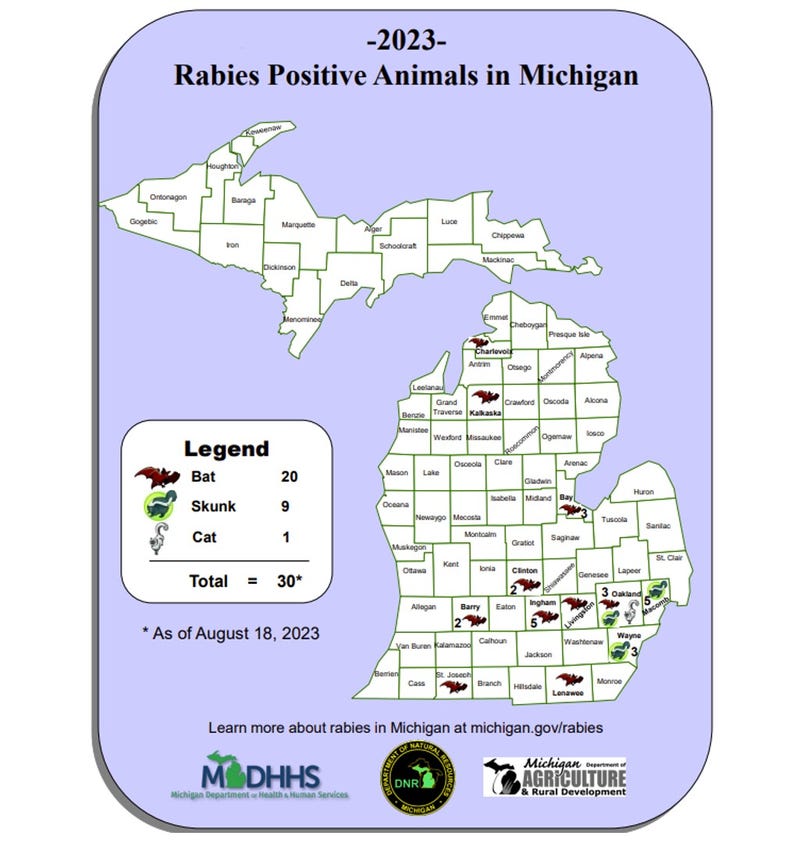
(WWJ) – Cases of rabies in Michigan continue to climb as two more cases in Macomb County have been confirmed in skunks.
Last Wednesday the county health department warned residents to take precautions after they identified three cases in skunks across the county, including two within close proximity of each other in Macomb Township.
Over the weekend state health officials released statewide data, showing there were 30 confirmed cases across the state, including five skunks in Macomb County as of Aug. 18.
In total, health officials have confirmed 20 cases in bats across the state, nine in skunks and one cat. The state did not specify when the cases were discovered.
In Wayne County, there have been three confirmed cases in skunks, while Oakland County has seen cases in one skunk, one bat and one cat.

Last week Macomb County officials said all three wild animals had come into contact with family pets. All three skunks were successfully captured, euthanized and tested, officials said.
"Given the proximity of the subject skunks, residents are strongly encouraged to take caution for themselves and their pets when they see a skunk due to the possibility of localized transmission," the health department said in a previous statement.
Rabies is a fatal, but preventable disease. In the U.S., officials say the virus can spread to people and pets if they are bitten or scratched by an infected animal, such as bats, raccoons, skunks, foxes or others.
While the only way to confirm rabies is by performing laboratory testing on the brain of a deceased patient, theCDC says there are symptoms that residents look out for in wildlife.
Animals with rabies can first experience lethargy along with vomiting and anorexia.
As the disease progresses, the following symptoms can be observed:
• Cerebral dysfunction
• Cranial nerve dysfunction
• Ataxia
• Weakness
• Paralysis
• Seizures
• Difficulty breathing
• Difficulty swallowing
• Excessive salivation
• Abnormal behavior
• Aggression
• Self-mutilation
There were 45 confirmed cases across the state in 2022. More information on rabies can be found on the MDHHS website.
